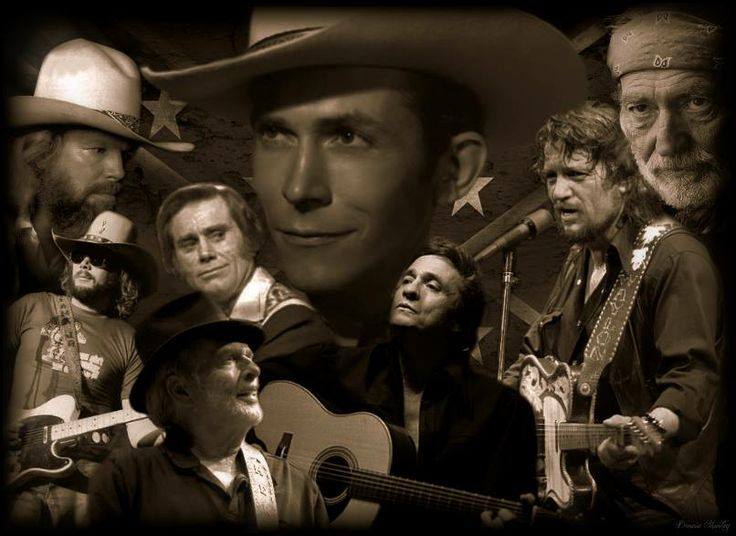Country and Western has long been saddled with the reputation as music for and by ignorant, simple folk. I bought into the myth myself until, while doing research for a course on popular music I was teaching, I discovered how uninformed that viewpoint is. Country boasts a wealth of remarkable performers and numerous sub-genres, including gospel. Born out of an evangelical culture, spirituals and gospel material were essential parts of the vocabulary; it was rare indeed to find a Country performer without spirituals in his or her repertoire.
Perhaps most significantly, the lengthy struggle to stay real in the face of record company meddling made it clear I had seriously misjudged the music.
Sadly, what passes for country today has little connection with its golden era.
Carolyn Dawn Johnson – who will be at Vancouver’s Orpheum Theatre February 17 – is a case in point. The one-time Alberta farm girl relocated to Nashville, attending songwriting workshops and secured a lucrative publishing deal.
In the latest edition of Words & Music she explains her approach; “The classes really helped me. One technique I learned was to write down ‘I’m a great songwriter’ and stick the papers all over my house.” Johnson’s debut album Room With A View (2001) spawned two number one singles and established her as a major player in her own right. Last month, she won Favorite New Artist in the country category at the American Music Awards. Hook-laden, with squeaky clean production, her material is closer to pop than anything resembling Hank Williams.
That’s par for the course. Nashville appears to have forgotten it’s roots…and that’s almost a tradition in itself.
From the beginning, label executives recognized Country’s commercial potential, but regarded the music itself as decidedly lowbrow, and made a calculated decision to promote it as such. In the 1920’s, sharp-dressed groups arriving at the Grande Old Opry suffered the indignity of being given new names like the Possum Hunters and the Fruit Jar Drinkers. In many cases, contracts specified they perform dressed in straw hats and overalls. A few years later, Hollywood added to the confusion by offering a sanitized version of the Cowboy that had little to do with reality.
By the 50s, the Honky Tonk and Hillbilly genres had set the stage for Rockabilly, and the powers that be retaliated with the light and easygoing ‘Nashville Sound.’ Fiddles gave way to lush string sections and the sanitized sound made stars of Jim Reeves and Patsy Cline, who enjoyed crossover hits into the pop charts.
In the early 60s, Buck Owens and Merle Haggard brought life back to the music via the Bakersfield sound. Basically an updated form of Honky Tonk, it was named for the rough California oil town they both came from. Soon after, rockers on the west coast like the Byrds, Flying Burrito Brothers and Poco began to explore the very roots Nashville was trying to shear.
By the 70s, Countrypolitan – a logical outcome of the Nashville Sound – was popular. Acts like Kenny Rogers, Olivia Newton John and the Oak Ridge Boys employed L.A. session players to create a tepid sound that made Patsy and Jim sound dangerous by comparison.
The gloss was stripped away by the Outlaws. Texas-based Willie Nelson, Waylon Jennings and Hank Williams Jr. were a welcome tonic, evincing a defiant stance that encompassed all that was right in the music. An album of the same name featuring Willie, Waylon and a few other like-minded artists became the first country record to got platinum. In short order the tag was co-opted, and the movement was reduced to product.
In the late 80s, the New Traditionalist movement mixed strong roots sensibilities with contemporary production values, and managed to please the public and the critics. Ricky Skaggs, Dwight Yoakam, George Straight and Randy Travis ruled the charts. Their power diminished significantly with the advent of New Country, a slick form reminiscent of 80’s stadium rockers; outside of the inevitable cowboy hat, had little to do with tradition. Powerhouse acts like Shania Twain and Clint Black made the power ballad a part of the Nashville vocabulary. Garth Brooks – who has a marketing degree and cites Kiss and Queen as influences – scored the first ever pop number one album out of Nashville.
Today, legendary musicians like Johnny Cash, Merle Haggard and George Jones record for labels that have no connection with Nashville. Each of these artists has stayed true to country, and they have been ignored as the business promotes young, good looking, corporate-minded acts.
If you want to hear what made the music great, the last place to investigate would be country radio, or Country Music Television. The legends are well worth searching out.
© John Cody 2003
